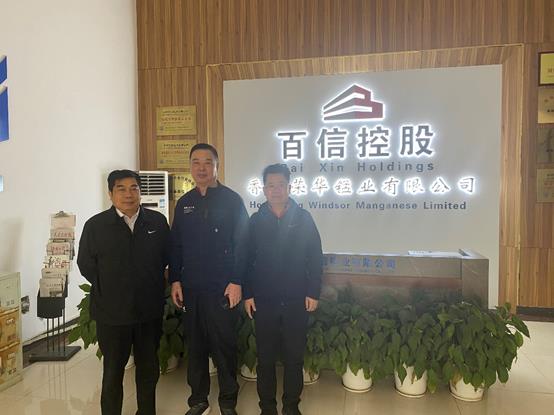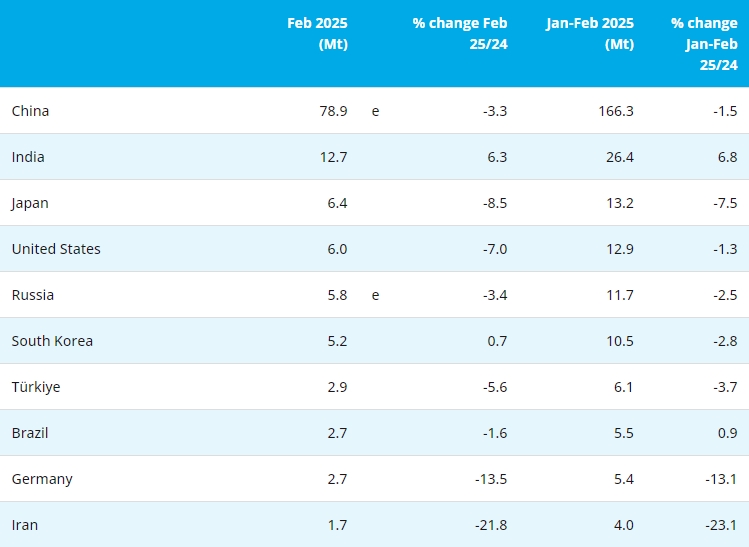Baotou, a city in North China's Inner Mongolia autonomous region, is transforming its old industrial base into an area of innovation-driven green development, Mayor Zhang Rui said.
When the People's Republic of China was founded in 1949, the city was an important base for heavy industry. It was where the first tank, anti-aircraft gun and nuclear fuel for atomic bombs were produced.
After more than 70 years of construction and development, Baotou has developed into a city with a dominant industrial cluster centered on industries such as steel, aluminum, equipment manufacturing, new energy and rare earth elements. It is widely known as "the capital of rare earth", "Grassland Steel City" and "Green Silicon Valley", Zhang said.
The industrial output of large enterprises in the city exceeded 500 billion yuan ($68.7 billion) last year, double that in 2020, he said.
"In particular, Baotou has leveraged its advantages in resources and equipment manufacturing to pursue the development of the crystalline silicon photovoltaic industry as a crucial driver for new growth points and pursuing new quality development," Zhang added.
The production value of the crystalline silicon photovoltaic industry in Baotou reached more than 100 billion yuan in 2022, making it the first city to reach that mark in China. The industry has become one of the fastest-growing, most concentrated and most innovative and competitive industries in Baotou, the mayor said.
More than 40 photovoltaic-related companies have invested and expanded production in the city, leading to the formation of a complete industrial chain.
Meanwhile, the construction of four 5-million-kilowatt new energy bases has been accelerated, with two of four 500-kilovolt pure new energy transmission lines being completed and put into operation.
"Baotou is becoming a city with the most complete photovoltaic industry chain in the country, and even globally," Zhang said.
Hao Kai, assistant to the general manager of Inner Mongolia Xinyuan Silicon Material Technology Co, said the company, which was established in 2021, produced 53,000 metric tons of granular silicon and 171,000 tons of industrial silicon last year, generating a total output value of 6.5 billion yuan.
The electrical consumption per kilogram of granular silicon produced by the company is approximately two-thirds lower than the traditional Siemens methods, which means that when producing 10,000 tons of granular silicon the company can reduce carbon emissions by 448,000 tons — equivalent to planting 2.2 million trees a year and saving 166,400 tons of standard coal, he said.
Baotou has created a series of industrial parks and clusters for new energy companies, Hao said.
He said the company is very bullish on the development of the photovoltaic industry in Baotou, as it has reached world-class industrial scale and is innovative and competitive.
Hu Jin, assistant to the general manager of Inner Mongolia Tongwei High-Purity Crystalline Silicon Co, said the company has invested more than 8 billion yuan to achieve a total annual production capacity of 75,000 tons of polycrystalline silicon. It was fully operational in July 2022.
Baotou's higher vocational schools can produce around 20,000 graduates for the industry each year, and the company can hire sufficient numbers from the schools through cooperation agreements, he said.
Photovoltaic power generation has become a clean, low-carbon and economically advantageous form of energy in most countries. At the end of last year, China's cumulative installed capacity of solar power generation had reached approximately 610 gigawatts, surpassing hydroelectric power to become the second-largest power source in the country, behind coal.
Hu said he believes the photovoltaic industry has broad development prospects in Baotou. The city holds significant advantages and potential in aspects including industry scale, policy support, technological innovation and market demand, he added. | China Daily
Copyright © 2013 Ferro-Alloys.Com. All Rights Reserved. Without permission, any unit and individual shall not copy or reprint!
- [Editor:kangmingfei]



 Save
Save Print
Print Daily News
Daily News Research
Research Magazine
Magazine Company Database
Company Database Customized Database
Customized Database Conferences
Conferences Advertisement
Advertisement Trade
Trade




 Online inquiry
Online inquiry Contact
Contact

Tell Us What You Think